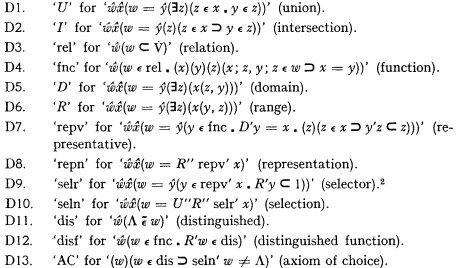Crossref Citations
This article has been cited by the following publications. This list is generated based on data provided by Crossref.
1985.
Equivalents of the Axiom of Choice, II.
Vol. 116,
Issue. ,
p.
289.
2001.
Bibliography.
Electronic Notes in Theoretical Computer Science,
Vol. 8,
Issue. ,
p.
252.
Kanai, Yasuo
2002.
On the Deductive Strength of Various Distributivity Axioms for Boolean Algebras in Set Theory.
MLQ,
Vol. 48,
Issue. 3,
p.
413.



